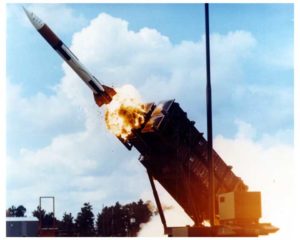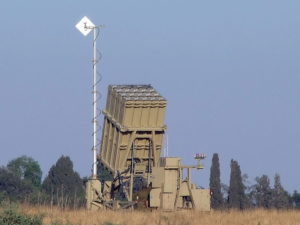
- The family of Dennis McGuire, the convict executed last week, is suing Ohio.
- They claim McGuire’s death constituted cruel and unusual punishment.
- Witnesses say McGuire took nearly a half hour to die.
- Spent much of that time choking, gurgling and gasping for air.
- Lawyers for the family are also suing Hospira, the makers of the lethal injection drug
Listen to the original broadcast
David Feldman: For more on this the Executive Director of the Death Penalty Information Center, Richard Dieter, joins us. Thank you for taking time to be with us, Richard.
Richard Dieter: Well, thank you for having me.
David: You’re saying that Americans still favor the death penalty. They just don’t trust the government to carry it out right.
Richard: They don’t have a philosophical or moral objection to the death penalty. It’s not the act of executing somebody who’s done some terrible crime that disturbs them. But they know that in practice that sometimes it’s going to make mistakes, and the cost of executing an innocent is just too high. We don’t need it. We have an alternative, life without parole, and even that is less costly and certainly less risky than the death penalty.
David: What other countries in the industrialized world still have the death penalty?
Richard: Well, China has it, and they’re kind of moving into the industrialized world. They’re the world’s largest numbers of executions. Japan has it. Very few. I mean, some of the countries in the Middle East like Iran and Iraq, and Pakistan have it. But all of Western Europe and Canada, Mexico, Australia, I mean, all of our main allies do not have it. Really, only a few use it, and we’re, U.S., in the top five in terms of executions in the world even though our numbers have come down.
David: Not every state has the death penalty. Do more states in America have the death penalty than don’t have it?
Richard: Yes, and I think you’re right to point that out. I mean, many people outside the U.S. think, ‘Well, why does the U.S. have it?’ Well, some states do and some states don’t, and it’s a changing number. But right now 32 states have it. 18 states have abolished it. But you take a typical year like 2013, only nine states carried out an execution. Only 15 states had even a death sentence.
So most of our states did not use the death penalty. Most haven’t used it in five years, in terms of executions. California has not had an execution since 2006, over seven years. Much of the country is not using it regularly. Over 80% of the executions are in the south, majority in Texas and Florida. It’s a pretty isolated thing.
David: How much of the weight is being carried by Texas? If you take Texas out of the mix, do we have capital punishment in America?
Richard: Not in any real way. I mean, one execution maybe in a year in a state, 20 executions in the country amidst 14,000 murders. It’s just complete symbolic unreality or myth that we would have it, and even Texas, the numbers are more than any other state. They had I think 15 executions this year, but their numbers are coming down. So even they are using it less than they used to.

Fewer and fewer Americans support the Death Penalty and are starting to favor life without parole according to our guest.
David: One-third of all executions in the United States…
Richard: Yeah, by one state. One state. Texas.
David: …come from Texas.
Richard: Yeah. It’s over 500 executions there.
David: Is there a uniform way of carrying out these executions? Or does each state do it differently?
Richard: It’s uniform in the sense that all states use lethal injection as their primary means. Some vary the drugs a little bit, and some give, like California, give an inmate a choice. But they’re not forced to have any method except lethal injection. A few times someone could actually choose something like the electric chair or the gas chamber. It happens very rarely.
But if they don’t make any choice, if they leave it to the state, it’s lethal injection. Same in the federal system. Same in the military. So, lethal injection is the prevailing and almost exclusive means of execution.
David: When did lethal injection become the sole form of execution? Because I remember Old Sparky in Florida.
Richard: Right. It’s been a very gradual process. Florida didn’t change until about the year 2000 when the electric chair was going to be brought up to the Supreme Court and they didn’t want their punishment to be struck down. But Texas started it in 1982. That was the first one.
So over a period of about 20, 25 years, states gradually gave way and got rid of the electric chair, the gas chamber like existed in California. Go back further it was hanging. Now, I don’t think any of those methods would be allowed to be enforced on anyone. It would be considered so unusual as to be cruel and unusual if a state adopted it as their method.
David: California doesn’t have executions because they can’t decide on what kind of drugs to use for the lethal injections. There’s a shortage of one drug because the maker refuses to ship it to the United States. What drug is that and what country does it come from?
Richard: Well, the drug sodium thiopental was used in California, and it was used all over the U.S. The maker of that drug, as you said, has stopped making it. Sodium thiopental is not available in the U.S. anymore.
David: The company stopped making the drug because they didn’t approve of its use?
Richard: Yeah. Basically, they didn’t say they were opposed to the death penalty. But they said that they actually were manufacturing this drug in Italy and the workers did not want their product to be used in executions. Italy as a country opposes the death penalty. So there were economic connections to this. But the company said, ‘Look. We don’t make this drug for killing. We make it for operating rooms, anesthetic purposes. We disown its use in executions, and as a matter of fact we’re going to stop making it altogether.’ So it’s not available for any purpose in the U.S. right now.
David: That’s part of a cocktail, that drug. There are two drugs that are injected into the inmate?
Richard: That was the standard, yes. It was sodium thiopental, which put you to sleep, followed by two drugs that really performed the act of killing. One stops the heart, potassium chloride, and one stops your breathing. That was pancuronium bromide. But states are shifting away from that. Texas, for example, just uses one drug. Ohio, Arizona, Georgia, Missouri, all of whom had executions recently, they’ve all used just a single drug. That’s the anesthetic pentobarbital, that in sufficient dosages not only puts you to sleep, but puts you to death.
The problem has continued in terms of obtaining the drug. So this drug is made by another European company that doesn’t want it used. So states have had to turn to something called compounding pharmacies in the U.S. These are unregulated small operations that will mix up one drug at a time. But they’re reliability has not been perfect. They have produced contaminated drugs that killed people accidentally in the past year. A meningitis outbreak was caused by drugs from compounding pharmacies.
So a good dosage or a pure dosage of this drug would cause death probably painlessly. An adulterated dose, or a weak dose, might cause death to be lingering, 10, 20 minutes maybe. Someone might have an adverse reaction. It’s a new drug for this purpose, and therefore it’s a bit of an experiment right now. We don’t know what possible mistakes could arise, especially if it’s, say, contaminated or impure.
David: Is there a pharmaceutical code of ethics in the United States?
Richard: I think so. I’m certainly not an expert on that. But there’s even an organization of compounding pharmacists who stress in their code of ethics commitment to the health of the patient. It mentions it over and over again, and of course the patient in the executions is the defendant who is about to be executed. So his concerns are not theirs.
Some compounding pharmacies have said they don’t want their drug to be used in executions. But it hasn’t been universal. Some are providing these. So I think there’s some sense that, ‘Well, this is not medicine. We’re just providing the chemical, so to speak. We’re not providing a medicine for restoring health. We’re just doing something for state purposes. But it’s not medicine.’ But this is a big debate in the medical field.
David: Is there money to be made compounding…
Richard: No.
David:…lethal injection?
Richard: You know? Sure, a little bit. But, as I said, we had 39 executions in the U.S. So one company, even if it all came from one company, that’s such a small percentage of anybody’s business that the only thing it does is that states are obviously big buyers for other purposes. If maybe you cooperate with them in providing this execution drug, you’re a reliable supplier for other things.
But states are having to pay for these drugs. But the amounts of money are more like $1,000, which sounds like a lot. Except, one death penalty case if you look at the legal cost is in the realm of a couple million dollars. So to carry it out with a $1,000 drug, even though that’s exorbitant, is pretty small in the big picture of things.
David: These drugs, you write as of November of 2013, are regulated by the Food and Drug Administration.
Richard: The compounding pharmacies were not regulated by the FDA up until November of 2013 when Congress passed a law. Nothing to do with the death penalty. It’s just because of the contamination from these drugs in the last year. So now there’s FDA, starting literally this month, some regulation. Whether they’re going to demand that compounding pharmacies only do things for the health of patients remains to be seen.
But they have not yet visited all of these compounding pharmacies that are supplying the drugs for the executions that occurred this month in Texas and elsewhere.
David: This would be the first time in American history that the tools by which we execute prisoners would be under the jurisdiction of the federal government. Nobody was regulating ropes…

For the first time in American history the FDA now has the authority to regulate the means by which we execute prisoners. So far it remains quiet.
Richard: Right.
David: …or electric chairs, or rifles.
Richard: That’s correct.
David: But now the federal government is regulating the drugs used to execute prisoners.
Richard: Yeah. They may do that. They haven’t done that yet. They were asked to regulate the drugs that were used, say, back in the 1980s when the supply was from the U.S. So there were drugs being used and a suit was filed against the FDA for not controlling it. The FDA said, ‘Look. We don’t want anything to do with it.’ The U.S. Supreme Court looked at that and said it was okay that they not get involved in that.
But now we’re talking regulation not just of drugs, but of an industry or the makers of them. So they may have to get back involved.
David: Does every state require a doctor to administer the lethal dose?
Richard: No. In most states it’s not a doctor. The only role the doctor might have would be to confirm that death has occurred after the lethal dose has been given. So you have people that are called part of the medical team. But they’re not doctors. They are trained guards who know how to find a vein, know how to insert an I.V., know how to pump a drug through the I.V.
But if anything goes askew, they’re not anesthesiologists. They don’t know when consciousness has really in-depth occurred. They don’t know when brain death has occurred, etc. Doctors, of course, mostly don’t want to have any part in it. Even confirming death has been challenged because if the person is not dead it’s sort of green light to keep executing them.
David: No doctor in America administers the lethal dose?
Richard: Well, I couldn’t say that for sure. There certainly have been some doctors in the past who have mixed the drug, who have checked for the vein. The American Medical Association has said doctors are not to participate. But that’s an advisory opinion. It’s not binding. So doctors are free to do some role in executions. Although, they would probably want their names kept secret.
So I can’t say that no doctor. As a matter of fact, I think some doctors have participated more. But I can say that reading all of the latest protocols that are coming out, you find that doctors have almost no role. The rules say something like, ‘This person could either be a nurse, emergency medical technician, or a doctor, knowing that it’s probably not going to be a doctor.
David: But there’s always a doctor present?
Richard: Even that I couldn’t say always happens. But that’s the norm in these executions. Prisons have doctors who are there for many purposes. If inmates get sick or die, doctors play a role, coroners…
David: Are the lethal injections being administered by public health professionals, nurses, EMT people, or prison guards?
Richard: Prison guards. No. It’s definitely prison guards, and they’re often not forced into that. They’re allowed to back out if they have an objection. But they’re trained guards. So they may work in the infirmary. They may have taken courses in locating veins in the person’s arm, etc. But it’s not medicine. They’re trained in sort of being assistants to doctors. But then you take the doctors and the anesthesiologists out of the picture and they’re more or less on their own.
But to be sort of brusque about this, the goal is that the patient dies, not that the patient survives. So, a little ineptitude is masked by what’s at stake here, which is not to be perfect, but just to get it over with.
David: Well, there are always observers. People have to…
Richard: Yeah.
David:…bear witness to the execution.
Richard: Yeah, that is true.
David: I always thought that was to ensure that it wasn’t cruel and unusual punishment.

Our guest says more and more Americans no longer trust our criminal justice system to execute only the guilty.
Richard: Well, it’s certainly to give the public, in whose name this is being done, eyes and ears into what’s happening. Because the idea of, ‘Well, just trust the government, then it’ll be fine,’ is just not the American way. So the media, defense lawyers, even sometimes a representative of the general public is allowed to view.
Now, they don’t determine that something is cruel and unusual. But their testimony has been presented to courts who are being asked to decide if something was cruel and unusual.
David: I do remember Old Sparky, I don’t even want to talk about it, where the guy’s head was on fire and he was still alive. There have been stories where they can’t find the vein and they can’t determine whether or not the prisoner is dead, and he appears to be in pain. Are there consequences for the state if they administer the death penalty in a cruel and unusual way?
Richard: There hasn’t been that kind of determination. I mean, there certainly have been prophylactic rules from the court that you can’t go ahead and do this. But I don’t know of a ruling that said, ‘That was a cruel and unusual punishment.’ There have been mistakes made, and the courts have said, ‘You’ve got to fix whatever led to that mistake. But this was an error. You didn’t deliberately set the guy’s head on fire. You didn’t deliberately have that needle fall out of his arm in the middle of the execution and the drug spilled on the floor, and it all took an hour.’
These things have happened. But they haven’t been ruled cruel and unusual, even though to the common understanding that’s certainly what they were. But cruel and unusual is a legal term meaning the state with all its power goes ahead and tortures you and makes purposeful mistakes. If that happens, sure. The state would be…
David: We’ve been talking with Richard Dieter. He’s the Executive Director of the Death Penalty Information Center. Richard, have they done any studies on what capital punishment does to the people who perform it?
Richard: There certainly has been testimony from chaplains who have witnessed the guards and what happens to them, and some of them really having psychological problems afterwards, wardens who have said this. Certainly, lots of anecdotal evidence that it takes its toll. The lethal injection thing is part of a set of problems of the death penalty that makes the public skeptical of the whole system.
The whole thing takes so long, has so many delays, errors, states running around trying to find drugs and turning to back room pharmacies. The whole thing has a bad taste right now, and that’s why I think we’re seeing less use of it.
David: Richard Dieter is the Executive Director of the Death Penalty Information Center in Washington, D.C. Thank you for your time.
Richard: All right. Well, good. Thank you.
Listen to the original broadcast
What do you think? I’d like to know. Please share your comments below.
















